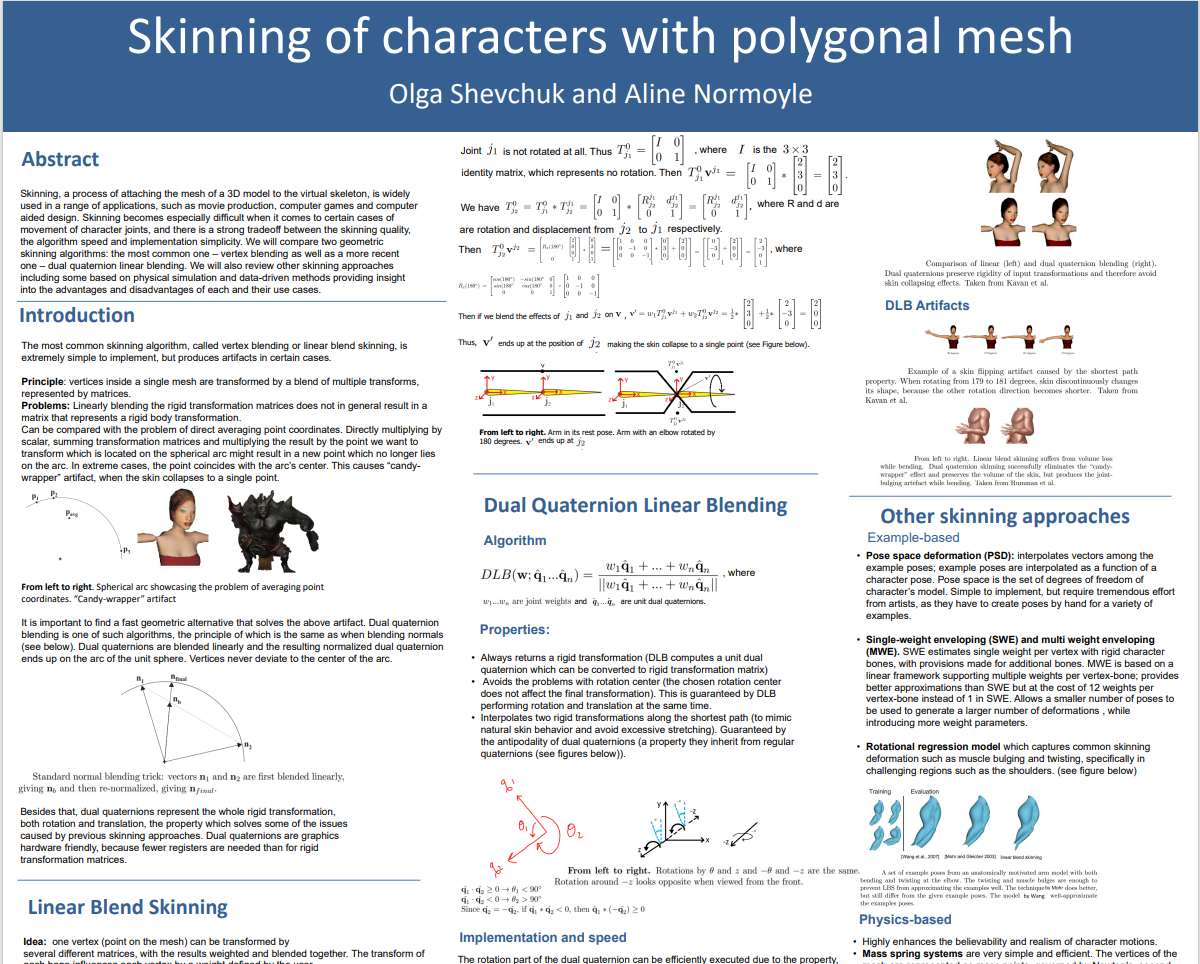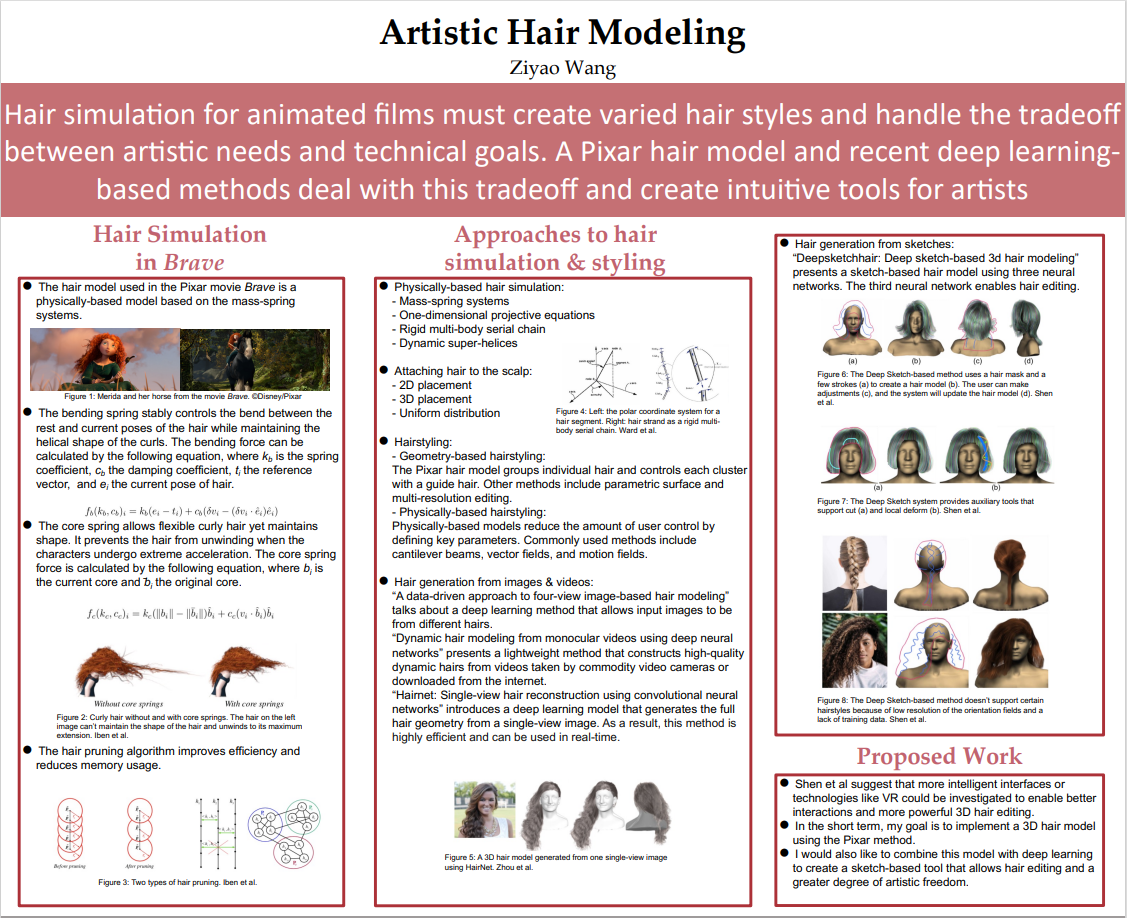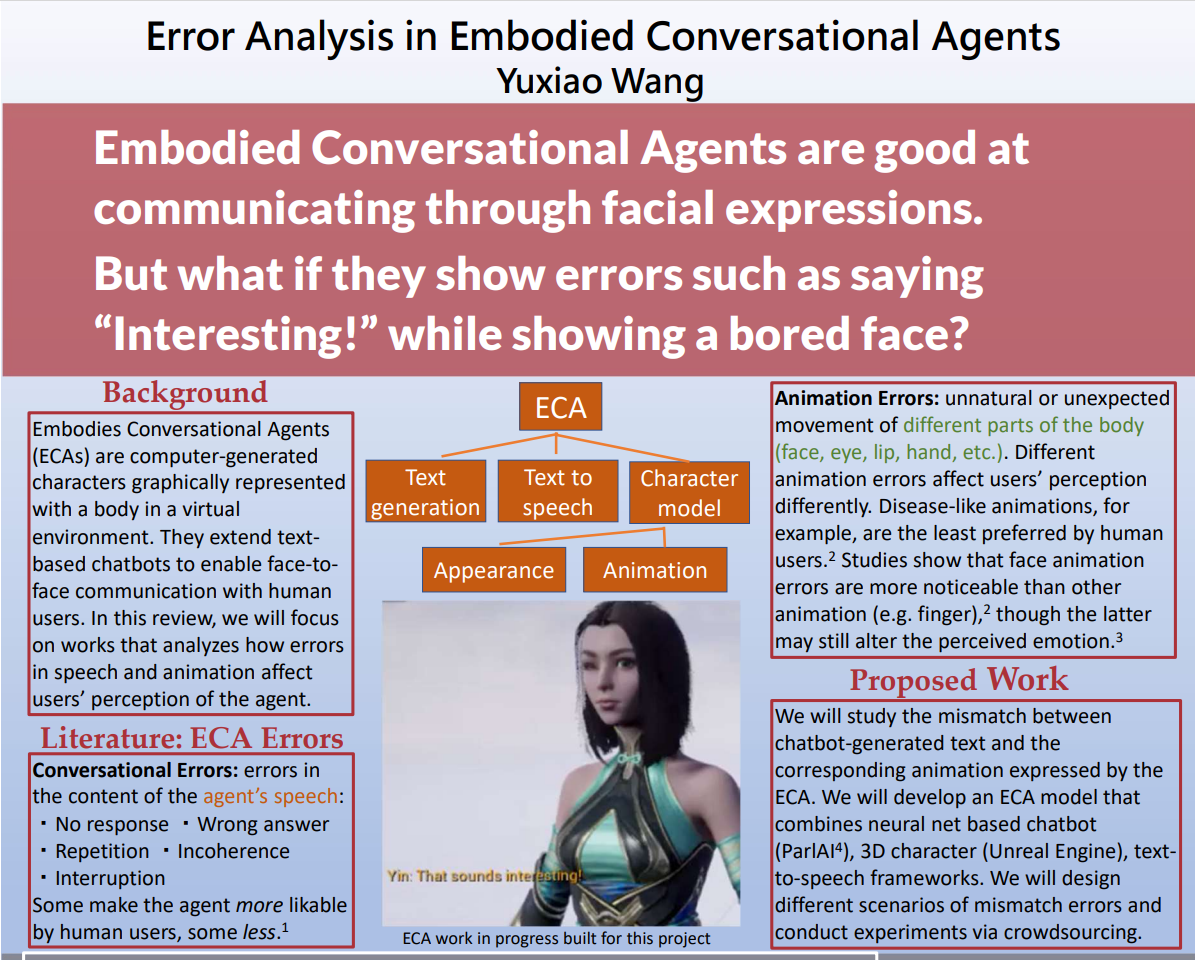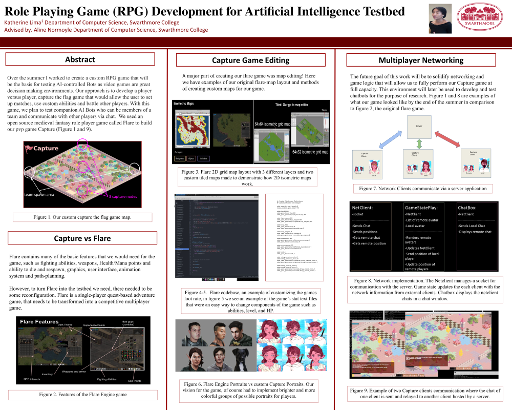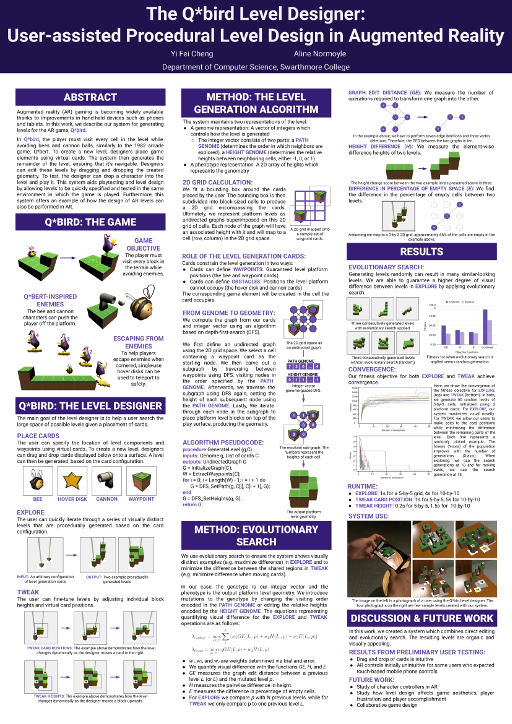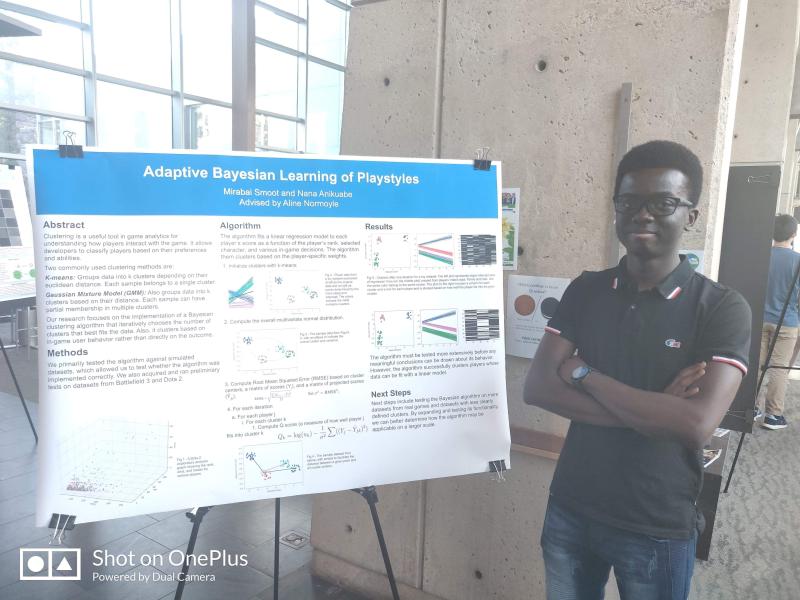
> Research Students
-
Neha Thumu, Bryn Mawr Summer Science Research Program, Understanding how character control and level design affect the player experience in video games, Summer 2022
-
Gulesh Shukla, Bryn Mawr RA, Analysis of motion from video, Spring 2022
-
Lola Rodgrigues, Bryn Mawr RA, ``Peg Game Task", Fall 2021
-
Samuel J. Rothstein, University of Pennsylvania REU, Collaborative Research: Multimethod Investigation of Articulatory and Perceptual Constraints on Natural Language Evolution, Summer 2020
-
Felicity Yick and Samantha Lee, University of Pennsylvania Summer Research, SPACES Project: Recreating the ancient city of Pachacamac, Summer 2020
-
Katherine Lima, Swarthmore Summer Researcher, Role Player Game (RPG) Development for Artificial Intelligence Testbed, Summer 2019
-
Yi Fei Cheng, Swarthmore Summer Researcher, The Q*Bird Level Designer: User-assisted procedural Level Design in Augmented Reality, Summer 2019
-
Mirabai Smoot and Nana Anikuabe, Swarthmore Summer Researchers, Adaptive Bayesian learning of Playstyles, Summer 2019
-
Effie Li, University of Pennsylvania REU, Collaborative Research: Multimethod Investigation of Articulatory and Perceptual Constraints on Natural Language Evolution, Summer 2019
-
Kristin Chow, University of Pennsylvania Summer Researcher, SPACES Project: Recreating the ancient city of Pachacamac, Summer 2019
-
Xuan Huang, Bryn Mawr College, Procedural Generation of Cities, Spring 2017
> Student Posters
> Bryn Mawr College Thesis
-
Alec Mazzoli, The Impact of Agent Performance on Human-Agent Conversational Error Analysis, Spring 2022
-
Haiqa Kamran, Charitably: An Aggregator Web Application for Charity Causes and Events, Spring 2022
-
Sarah Coufal, Embodiment from Video, Spring 2022
-
William Lawrence, Automatic Placement of Cultural Objects Within a Simulated Archaeological Environment, Spring 2022
-
Faryal Khan, Scripting Crowd Behaviors in SPACES, Spring 2022
-
Faith Meacham, Procedural Level Generation for Monument Valley Styled Puzzle Games, Spring 2021
-
Jocelyn Dunkley, VR Orchestra App: Violin Prototype, Spring 2020
-
Linda Zhu, InstructAR: Building a Deliverable Infrastructure of How-to Kits for Assembly Scenarios in Augmented Reality, Spring 2020
> Haverford College Thesis
-
David Dinh, Parallel Computation: Simulating Smoke on the GPU, Fall 2022
-
Macintyre Sunde, Shape Grammars for Architectural Reconstruction, Spring 2022, Fall 2022
-
Olga Shevchuk, Skinning of Characters with Polygonal Mesh, Fall 2021, Spring 2022
-
Ziyao Wang, Artistic Hair Modeling, Fall 2021
-
Yuxiao Wang, Literature Review: Embodied Conversational Agents, Fall 2020
> Independent Study
-
Neha Thumu, Motion and navigation planning for digital characters, Fall 2022-Spring 2023
-
Samuel J. Rothstein, Swarthmore, Procedural generation of body language, Spring 2020
-
Swarthmore CPSC 000SR, Student instructor: Aaron Kang, Introduction to Unity, Spring 2019
-
Michael Piazza, Swarthmore, Topics in Procedural Animation, Spring 2017
